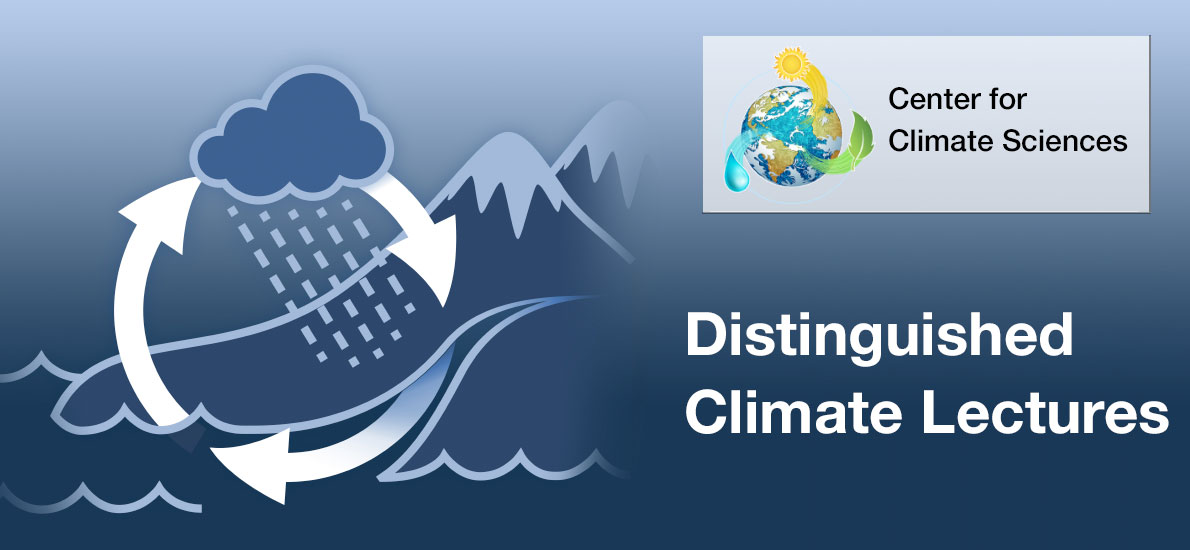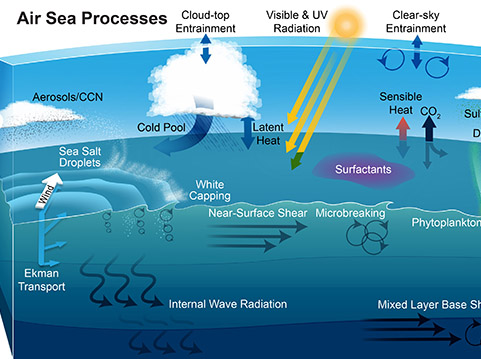Seminars
Ocean imprints: Small-scale air-sea interactions and ocean-weather climate connections
April 27, 2021
| WebEx, 9:00am PT
› view lecture

About this Lecture

The transfer of energy between the ocean and atmosphere drives global weather patterns and climate variability, as the ocean contains close to 97% of Earth’s water and has absorbed more than 90% of the excess heating in the Earth system. These air-sea interactions are critical to large-scale weather and climate predictions because of the ocean’s ability to absorb the excess atmospheric heat and carbon and regulate exchanges of momentum, water vapor and heat between the ocean and atmosphere. In this talk I will discuss how the ocean impacts our weather and climate systems, and what we do and don’t know about our air-sea interactions, with a focus on the impact of largely upsampled small-scale variability. I will also talk about what changes we have seen in the last few decades, and discuss how these changes are affecting water moving through the ocean, atmosphere, land and back again. There are still gaps in our knowledge of this complicated part of our climate system, and we will talk about unknowns and new observations, models, and forecasts that are being developed to help us improve predictability for weather and climate information.
About

Dr. Carol Anne Clayson is a Senior Scientist in the Department of Physical Oceanography at the Woods Hole Oceanographic Institution (WHOI), and the former director of the Ocean and Climate Change Institute. She currently directs the Center for Air-Sea Interaction and Marine Atmospheric Sciences. Her current areas of research include understanding upper ocean mixing processes, how air-sea interactions affect the climate scale, and ocean impacts on the global water cycle. Her research has been supported by the Office of Naval Research, the National Science Foundation, NOAA, and NASA. She has served on numerous national and international science panels, including service as the co-chair of the Climate Panel for the recent NASA Decadal Survey for Earth Science and Applications from Space. For the National Research Council she has served on the Board on Atmospheric Sciences and Climate and was a lead reviewer of the US Climate Change Science Programme Synthesis and Assessment Product. In 2020 she chaired the US CLIVAR Scientific Steering Committee. Dr. Clayson is the recipient of an NSF CAREER award and the Office of Naval Research Young Investigator Award, and received a Presidential Early Career Award for Scientists and Engineers from President W. Clinton. She is currently leading the GDAP SeaFlux product. She holds a BS in physics from Brigham Young University, and MS and PhD degrees in Aerospace Engineering Sciences from the University of Colorado.
